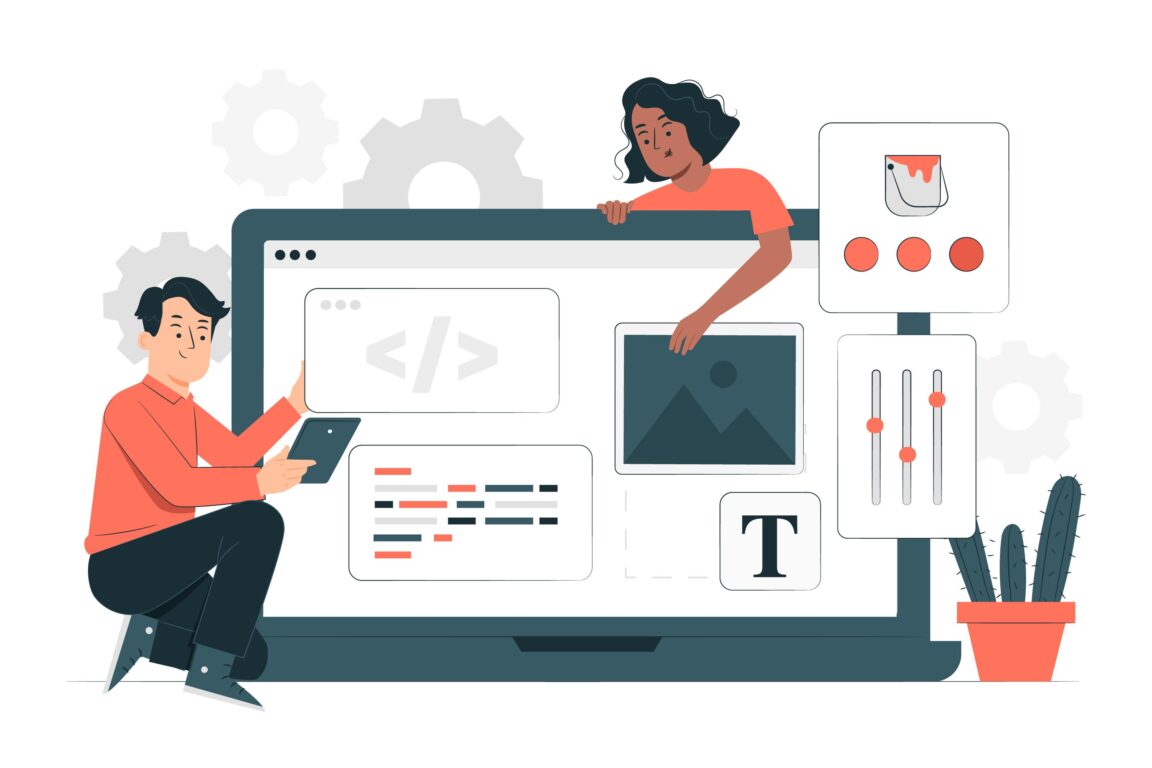Web development is a rapidly evolving field that encompasses a broad range of skills, techniques, and technologies. In today’s digital age, the web is a ubiquitous presence that pervades nearly every aspect of our lives, from the way we work and communicate to the way we shop and entertain ourselves. As a result, web development has become an increasingly important and in-demand field, with opportunities for skilled developers to work on a wide range of projects, from small, personal websites to large-scale enterprise applications.
What is Web Development?
At its most basic level, web development is the process of creating and maintaining websites. This includes everything from designing the layout and functionality of a site to writing the code that makes it run.
Front-end development focuses on the user-facing aspects of a website, such as a layout, design, and functionality of the user interface. Front-end developers use languages such as HTML, CSS, and JavaScript to create the visual and interactive elements of a site, such as menus, buttons, forms, and animations.
Back-end development, on the other hand, deals with the behind-the-scenes aspects of a website, such as the server-side code that handles data storage, security, and other functionality. Back-end developers use languages such as PHP, Python, and Ruby to create the logic that powers the site and may work with databases, APIs, and other technologies to ensure that everything runs smoothly.
The Importance of Web Development
In today’s digital age, a strong web presence is essential for businesses and organizations of all sizes. A well-designed and functional website can help to establish credibility, build brand awareness, and attract and retain customers. In addition, a website can serve as a platform for communication, customer service, and e-commerce, enabling businesses to reach a wider audience and sell their products and services more effectively.
For individuals, web development can offer a range of opportunities for personal and professional growth. Learning to code and build websites can open up new career paths and provide valuable skills that are in high demand. It can also be a rewarding hobby, allowing individuals to create and share their own projects and ideas with the world.
Web Development Tools and Technologies
Some of the most common tools and technologies used in web development include:
- HTML: CSS, or Cascading Style Sheets, is the language used to describe the presentation and formatting of web pages. It provides the structure and content of a website, defining elements such as headings, paragraphs, and images.
- CSS: Cascading Style Sheets, or CSS, is a language used to style and format web pages. It allows developers to create visual effects such as colors, fonts, and layouts and can be used to create responsive designs that adapt to different screen sizes and devices.
- JavaScript: JavaScript is a popular coding language employed for developing engaging and interactive web pages with dynamic functionalities. It can be used to create animations, manipulate the DOM (Document Object Model), and create complex web applications.
- PHP: It is often used in conjunction with MySQL or other databases to create robust and scalable web applications.
- Python: Python is a popular general-purpose programming language used in a wide range of applications, including web development. It is often used to create back-end code for web applications, and can also be used for scripting, data analysis, and machine learning.
- Ruby on Rails: It provides a set of tools and conventions for building web applications quickly and efficiently, and is widely used in the development of e-commerce sites and other complex content Management Systems (CMS): A CMS is a software application that allows users to create, manage, and publish digital content, often without requiring specialized technical knowledge.Responsive Web Design: Responsive web design is an approach to web development that focuses on creating sites that adapt to different screen sizes and devices. This involves using flexible layouts, images, and media queries to create a consistent user experience across desktops, tablets, and smartphones.
- Web Hosting: Web hosting refers to the process of storing a website on a server and making it available to users via the Internet. There are many different types of web hosting services available, ranging from shared hosting to dedicated servers.
- APIs: Application Programming Interfaces, also known as APIs, are a collection of methods and standards that facilitate communication between diverse software applications.APIs can be used to integrate different services or data sources into a web application, enabling developers to create more complex and powerful applications.
Challenges in Web Development
Web development is a challenging field that requires a wide range of technical and creative skills. Some of the key challenges faced by web developers include:
- Rapidly Evolving Technologies: Web development technologies are constantly evolving, and developers must stay up-to-date with the latest trends and best practices in order to remain competitive.
- Security: Websites are often targeted by hackers and other malicious actors, and developers must take steps to ensure that their sites are secure and protected against attacks.
- Compatibility: Web developers must ensure that their sites are compatible with a wide range of browsers, devices, and operating systems, which can be a complex and time-consuming task.
- Performance: Websites must be optimized for fast loading times and smooth performance, which requires careful attention to issues such as image size, caching, and code optimization.
- User Experience: Web developers must design sites that are intuitive and easy to use, while also providing a visually appealing and engaging experience for users.
Conclusion
Web development is a challenging and dynamic field that requires a diverse range of technical and creative skills. Whether you are building a personal website or working on a complex enterprise application, web development offers endless opportunities for learning, growth, and innovation. By staying up-to-date with the latest technologies and best practices, and by staying focused on the needs of users, web developers can create powerful and engaging web experiences that make a real difference in people’s lives.







Comments
0 comments